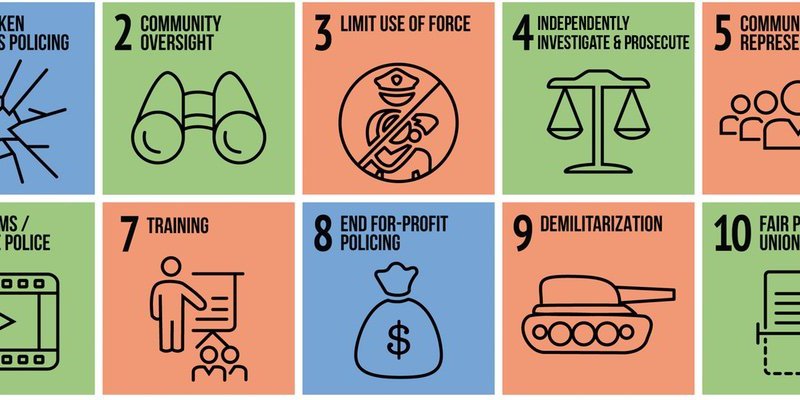-

Parents refusal to get vaccine forced the Minnesota zoo to put down their meerkats
With debate raging over the Cincinnati Zoo’s decision to euthanize an endangered gorilla after a child fell into its enclosure, documents from a similar incident ten years prior raise the same questions about parental responsibility and stringent laws concerning animal safety.
-

The NSA’s guide to the internet is the weirdest thing you’ll read today
The NSA has a well-earned reputation for being one of the tougher agencies to get records out of, making those rare FOIA wins all the sweeter. In the case of Untangling the Web, the agency’s 2007 guide to internet research, the fact that the records in question just so happen to be absolutely insane are just icing on the cake - or as the guide would put it, “the nectar on the ambrosia.”
-

Court grants Temporary Restraining Order forcing removal of MuckRock documents
A King County, Washington court has granted Landis+Gyr’s request for a Temporary Restraining Order, forcing MuckRock to un-publish materials it received via a public records request filed by Phil Mocek. We disagree with the court’s decision and are confident that ultimately our right to publish lawfully obtained materials will be vindicated.
-

When conducting the Census, computers count
From the first mechanical counters to the first digital computers, the U.S. Census Bureau has lead the computer revolution since the 19th Century. Their decennial upgrade cycle means they’re operating on modern hardware, with their oldest active computer dating back to just 1999.
-

A multinational demands to know who reads MuckRock and is suing to stop us from posting records about them
A multinational owned by Toshiba is demanding MuckRock remove documents about them received under a public records act request, destroy any copies we have, and help identify MuckRock readers who saw them. We believe that these threats are a chilling attack on free speech.
-

Why is the DEA still spending millions on “cannabis eradication” programs?
The United States is a country that, one way or another, seems to be going to pot. Over half of states have already passed measures to legalize marijuana’s recreational or medicinal use; still more are considering them. All of which calls into question the seemingly self-contradictory federal policy of “cannabis eradication,” which the DEA spends millions on each year.
-

The human cost of wage theft in Massachusetts
Over the last several years, nearly one in five wage theft complaints from Boston workers to the Attorney General’s Office involved restaurants, recently released documents indicate. The documents cover complaints made after 2012, when the US Department of Labor found that dozens of Boston-area restaurants owed their workers nearly $1.3 million, or roughly $2,600 to each worker.
-

Spook-le Analytics: CIA’s online traffic stats
After the Snowden leaks, interest in the National Security Agency skyrocketed: FOIA requests to the NSA were up over a thousand percent compared to pre-Snowden levels. But interest in the CIA has apparently waned during that same period.
-

#Followed: How police across the country are employing social media surveillance
LittleSis is partnering up with MuckRock to investigate how police across the country are monitoring, tracking, and archiving public social media posts.
-

The Dog Data of New York
Among the 8.5 millions humans of New York City, there sure are a lot of dogs. And according to recently released pet registration data, if you were to pick one at random, it’s most likely that it would be a Yorkshire Terrier named Max, living on the Upper West Side. Find out what are the most popular names and breeds of each of the boroughs, and where a Peruvian Inca Orchid named “Fabio Texas” calls home.
-

Why did the Justice Department redact a smiley face from this FOIA request?
Since March, Martin Peck has been FOIA-ing various DOJ components for their records on controversial online repository Cryptome.org. Though most agencies have claimed not to have anything, there’s been a few interesting finds - including one agency’s inexplicable decision to half-redact a doodle under the privacy exemption.
-

FOIACenter: March Madness Recap
Now that the dust has settled and the USDA has been crowned champion of our 2016 FOIA March Madness, MuckRock staff is taking a look back at how each individual bracket fared. This is FOIACenter.
-

Boston finds Muslim surveillance program “flawed and problematic,” but implements it anyway
Civil rights groups have frequently lodged complaints against government counter-extremism strategies that rely on unfounded theories of radicalization and stigmatize American-Muslim communities. To its credit, the group tasked with drafting the Greater Boston Countering Violent Extremism (CVE) framework goes to great lengths to acknowledge these criticisms – but those acknowledgments ultimately proves ineffectual in making an impact on the final strategy.
-

The Private Prison Primer: A tale of two prison towns Part 2
With combined revenues of over $3 billion dollars, it’s easy enough to point to GEO Group and CCA as fueling the private incarceration industry. But between their prisons, jails, immigrant detention centers, youth residential centers, and community corrections facilities, there are now 151 communities complicit across the country, where local cooperation has been necessary to the expansion of private prisons.
-

That time the Air Force dropped a nuke on South Carolina
In 1958, the Air Force accidentally dropped a Mark 6 nuclear bomb over Mars Bluff, South Carolina. Though the bomb’s atomic capabilities were deactivated, its conventional payload wasn’t, and recently released photos from the investigation give some scale to how massive the damage was - and how much, much worse it could have been.
-

The Private Prison Primer: A tale of two prison towns Part 1
The expansion of private - and public - prisons across the U.S. helps illustrate the tangle created when social and economic needs come into conflict.
-

MuckRock releases its millionth page of government documents
After six years and 21,796 public records and FOIA requests, MuckRock users have hit a new milestone: One million pages of government documents released back to the public.
-

FOIA March Madness: The Final Four
Two months ago, we kicked off FOIA March Madness with 64 federal agencies. After a brutal opening round, and grueling semis, we’re down to this - the Final Four.
-

Requester’s Voice: Sam Sinyangwe of Campaign Zero
Sam Sinyangwe is a policy analyst and data scientist with Campaign Zero focused on helping activists across the country better understand and address police violence in America, particularly within communities of color. Sam explains what drives his data-centric activism, and how public records are helping reshape conversations across the country.
-

The fall of an American Emperor: the last days of J. Edgar Hoover
When we last looked at J. Edgar Hoover’s personal files, the newly-minted FBI Director was America’s criminal justice wunderkind, settling into his role as Number One G-Man amid nearly universal acclaim. Almost half a century later, the file shows a very different Hoover, neither wunder nor kind - a paranoid recluse scouring the tabloids for bad press while fighting the constant threat of forced retirement.
-

When Elvis didn’t meet Hoover
While the meeting between Nixon and the King is the stuff of legend, hidden within Elvis’ FBI file is a lesser known but equally bizarre epilogue. While in Washington visiting the president, Elvis Presley repeatedly tried - and failed - to gain an audience with the man he called “the greatest living American,” J. Edgar Hoover.
-

Portrait of the Director as a young man: J. Edgar Hoover’s FBI file
On the anniversary of the death of the infamous FBI Director J. Edgar Hoover, MuckRock takes a look through his earliest files and finds that Hoover was a apparently a pretty swell guy … at least according to Hoover.